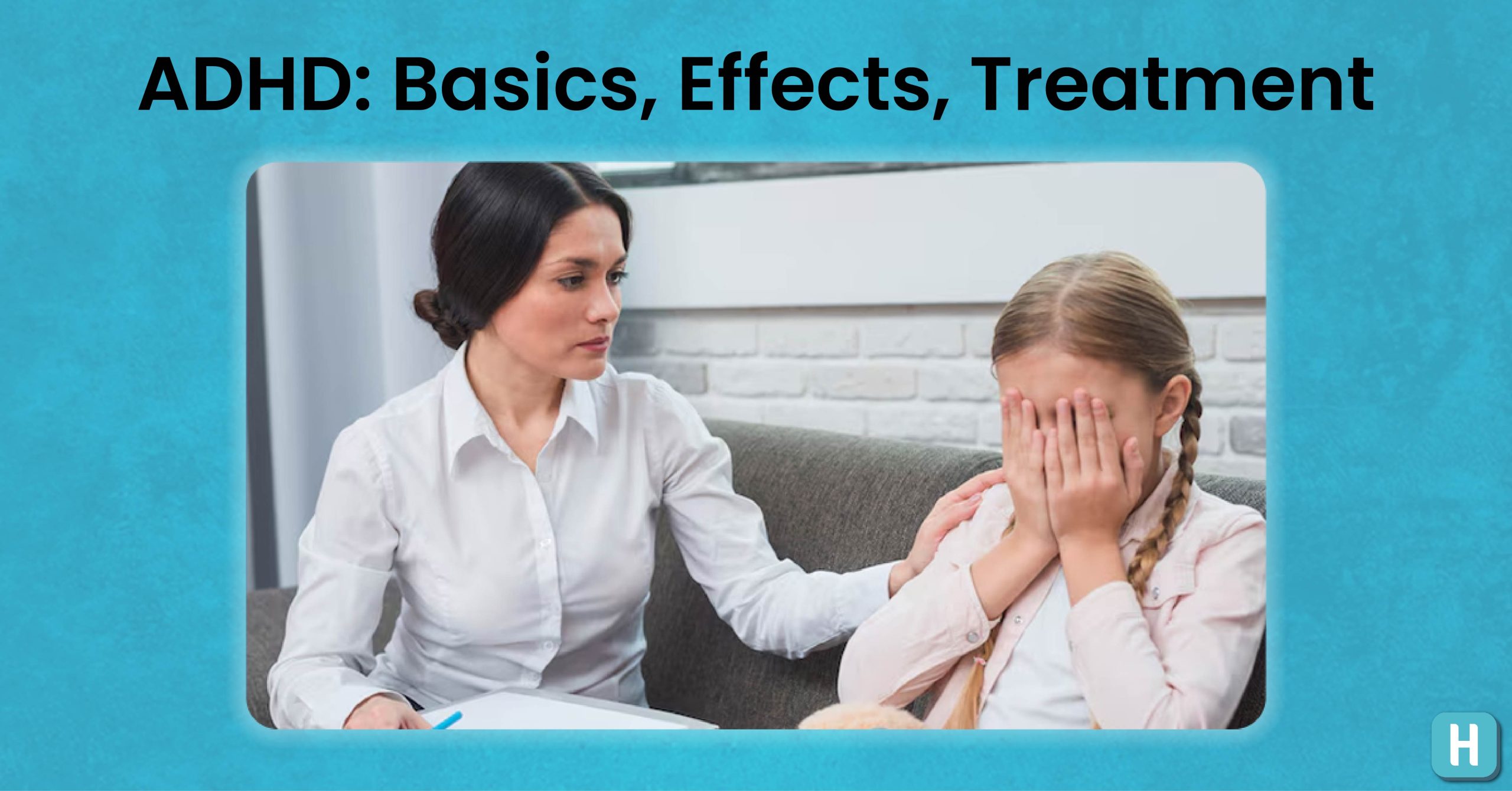Do you ever feel like you’re in a constant battle with your own mind? Maybe you struggle to focus on tasks, the organization feels like a never-ending uphill climb, and staying still seems like an impossible task. If this sounds familiar, you might be wondering if ADHD could be playing a role.
Attention deficit hyperactivity disorder (ADHD) is a common neurodevelopmental condition that can impact focus, attention, and behavior. It can be frustrating and isolating, but the good news is that there’s a wealth of information and support available. This guide aims to be your starting point on the path to understanding and managing ADHD.
Spotting the Signs: Could This Be ADHD?
We all have days where our minds seem to be elsewhere. However, for people with ADHD, these challenges are persistent and significantly impact daily life. Common signs include:
- Losing things necessary for tasks and activities (schoolwork, work documents, keys, phones)
- Hyperactivity (fidgeting or squirming) or impulsivity (blurting out answers, interrupting conversations)
- Forgetfulness in daily routines (e.g., chores, returning calls)
- Easily distracted by extraneous stimuli
- Difficulty paying close attention to details or completing tasks
- Difficulty organizing tasks and activities
Here’s the thing: ADHD can manifest differently in everyone. It might look like fidgeting in your seat during meetings, forgetting appointments, or blurting out answers before someone finishes a question. It’s important to remember that ADHD can also present differently in boys and girls, so a one-size-fits-all approach doesn’t exist.
Different Strokes for Different Folks: Exploring the Types of ADHD
There are three main types of ADHD, categorized based on the most prominent symptoms:

Predominantly Inattentive Presentation
Difficulty focusing and completing tasks, often appearing spacey or forgetful.
Predominantly Hyperactive-Impulsive Presentation
Excessive fidgeting, restlessness, blurting out answers, and difficulty waiting for turns.
Combined Presentation
Symptoms from both inattentive and hyperactive-impulsive presentations.
Understanding the specific type of ADHD you (or someone you care about) might have can be a powerful tool. It allows you to tailor strategies and support systems to address the most impactful challenges.
ADHD: A Journey Through Life Stages
ADHD can manifest at any age, though symptoms may change over time.
Children with ADHD
Often struggle in school and social settings and may appear disruptive or inattentive.
Adults with ADHD
May face challenges with work, relationships, and daily routines. While some children may outgrow certain symptoms, ADHD often persists into adulthood, sometimes taking on a new form.
The Science Behind You: How ADHD Affects the Brain
Imagine your brain as an orchestra. In ADHD, some of the instruments might be a little out of tune, making it harder for the whole symphony to play smoothly. This can affect how your brain regulates focus, attention, and impulse control. It’s not your fault – it’s simply the way your brain is wired!
Clearing Up Confusion: Is ADHD a Mental Illness?
While ADHD can sometimes co-exist with mental health conditions like anxiety or depression, it’s not technically classified as a mental illness itself. It’s a neurodevelopmental disorder, meaning the way your brain functions is different.
Getting the Help You Deserve: The Diagnosis Process
There’s no single test for ADHD, but a mental health professional can conduct a comprehensive evaluation to understand your symptoms and rule out other possibilities. This evaluation may include interviews, symptom checklists, and assessments. Don’t be afraid to seek help – it’s the first step towards managing your ADHD effectively and living a fulfilling life.
Finding Solutions: Treatment Options for ADHD
The good news? ADHD is highly treatable! There are several approaches to consider, and the best course of action will depend on your specific needs. Here are some common options:

- Medication: Stimulant medications like Ritalin and Adderall can help regulate brain chemistry and improve focus and attention. Non-stimulant medications are also available.
- Therapy: Cognitive behavioral therapy (CBT) can equip you with strategies to manage symptoms, improve organization, and develop coping mechanisms.
- Apps and Tools: There are many apps and tools available to support people with ADHD. These can help with organization, time management, focus, and reminders. Some popular options include Evernote, Focus Keeper, Forest, and Todoist.
Living Well with ADHD: You’ve Got This!
ADHD is a lifelong journey, but it doesn’t have to hold you back. With the right support system, consistent management strategies, and a positive attitude, you can thrive with ADHD. Here are some resources that can help:
Support Groups
Connecting with others who understand ADHD can be incredibly helpful. Local chapters of CHADD (Children and Adults with Attention-Deficit/Hyperactivity Disorder) offer support groups for children, adults, and families. You can find a chapter near you on their website. There are also many online support groups available.
Online Communities
Online communities can be a great source of information, support, and inspiration. Websites like ADDitude Magazine and Reddit’s r/ADHD offer a wealth of resources and connect you with a supportive online community.
Remember, you’re not alone in this – there’s a whole world of people who understand and can help you navigate your path to success.
If you suspect you or someone you care about might have ADHD, the first step is to seek professional help. A mental health professional can conduct a comprehensive evaluation and recommend the best course of treatment.

